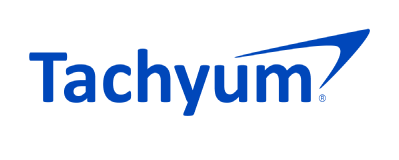Media-Center / Pressemitteilungen / 2020 /
Tachyum Sends Prodigy Chip FPGA Emulation Prototype to Manufacturing
· 5 Minuten Lesedauer
SANTA CLARA, Calif., October 27, 2020 - Tachyum™ Inc. today announced that it has achieved another major milestone of its Prodigy Universal Processor development by releasing the netlist of its Prodigy hardware emulation design to a manufacturer to build field-programmable gate array (FPGA) emulation boards for final testing before chip tape-out.
FPGAs are hardware chips with circuits that can be customized by a user writing configuration images to configure the “blank” FPGA in order to execute specific functions. They are useful to the semiconductor design and prototyping process to ensure that the final design is bug-free and performs to expected metrics. Though they are bigger and slower by their nature, once an FPGA emulation of the Prodigy processor is working properly, then the final produced chip should work as well. Moving into the FPGA phase means that Tachyum will have the ability to test hardware, software and I/O cards before tape out.
“Though our engineering team has continued to hit their goal metrics throughout the design cycle of Prodigy, moving to the FPGA stage is the most significant step in readying our Universal Processor Chips for market,” said Dr. Radoslav Danilak, Tachyum founder and CEO. “Tachyum decided to build its own FPGA emulation system instead of relying on existing emulation systems in order to have enough speed to run real applications and real I/O. This is not just for a single core either. We are implementing a full chip emulation, which will serve as the final proof that Prodigy will work in silicon after tape out.”
The complete layout from Tachyum’s Netlist design will be connected to test chips for PHY and DDR to ensure first pass silicon success of the Prodigy product. After the emulation boards are delivered from the manufacturer and the chip design is thoroughly debugged, customers and partners will have access to evaluate Prodigy’s FPGA emulation system through a pre-order process. The emulation system can be placed into a rack with the capability of either a full chip, half chip or quarter chip, available for software development.
Tachyum’s Prodigy can run HPC applications, convolution AI, explainable AI, general AI, bio AI and spiking neural networks, as well as normal data center workloads on a single homogeneous processor platform using existing and standard programming models. Using CPU, GPU, TPU and other accelerators in lieu of Prodigy for these different types of workloads is inefficient. A heterogeneous processing fabric, with unique hardware dedicated to each type of workload (e.g. data center, AI, HPC), results in underutilization of hardware resources, and more challenging programming, support, and maintenance environments. Prodigy’s ability to seamlessly switch among these various workloads dramatically changes the competitive landscape and the economics of data centers.
Prodigy significantly improves computational performance, energy consumption, hardware (server) utilization and space requirements, compared to existing processor chips provisioned in hyperscale data centers today. It will also allow Edge developers for IoT to exploit its low power / high performance, along with its simple programming model to deliver low cost / high performance AI to the edge.
Prodigy is truly a universal processor. In addition to native Prodigy code, it also runs legacy x86, ARM and RISC-V binaries. And, with a single, highly efficient processor architecture, Prodigy delivers industry-leading performance across data center, AI, and HPC workloads. Prodigy, the company’s flagship Universal Processor, will enter volume production in 2021. In April the Prodigy chip successfully proved its viability with a complete chip layout exceeding speed targets. In August the processor demonstrated its ability to correctly execute short programs, with results automatically verified against the golden software model, while exceeding the target clock speed. The next step is to get manufactured, a wholly functional FPGA prototype of the chip later this year, which is the last prototype milestone before chip tape-out.
Prodigy outperforms the fastest Xeon processors at 10x lower power on data center workloads, as well as outperforming NVIDIA’s fastest GPU on HPC, AI training and inference. The 125 HPC Prodigy racks can deliver a 32 tensor EXAFLOPS. Prodigy’s 3X lower cost per MIPS and 10X lower power translates to a 4X lower data center Total Cost of Ownership (TCO), enables billions of dollars of savings for hyperscalers such as Google, Facebook, Amazon, Alibaba, and others. Since Prodigy is the world’s only processor that can switch between data center, AI and HPC workloads, unused servers can be used as CAPEX-free AI or HPC cloud, because the servers have already been amortized.
To pre-order FPGA emulation systems, interested parties can visit https://www.tachyum.com/resources.
Follow Tachyum
https://www.linkedin.com/company/tachyum
https://www.facebook.com/Tachyum/
About Tachyum
Tachyum is disrupting data centers, HPC and AI markets by providing universality, industry leading performance, cost and power, while enabling data centers that are more powerful than the human brain. Tachyum, co-founded by Dr. Radoslav Danilak, and its flagship product Prodigy, the world’s first and only universal processor, begins production in 2021. Prodigy brings unprecedented value targeting a $50B market that is growing at 20% per year. With data centers currently consuming over 3% of the planet’s electricity, and 10% by 2025, low power Prodigy is critical for the continued doubling of worldwide data center capacity every 4 years. Tachyum has offices in the USA and Slovakia, EU.

